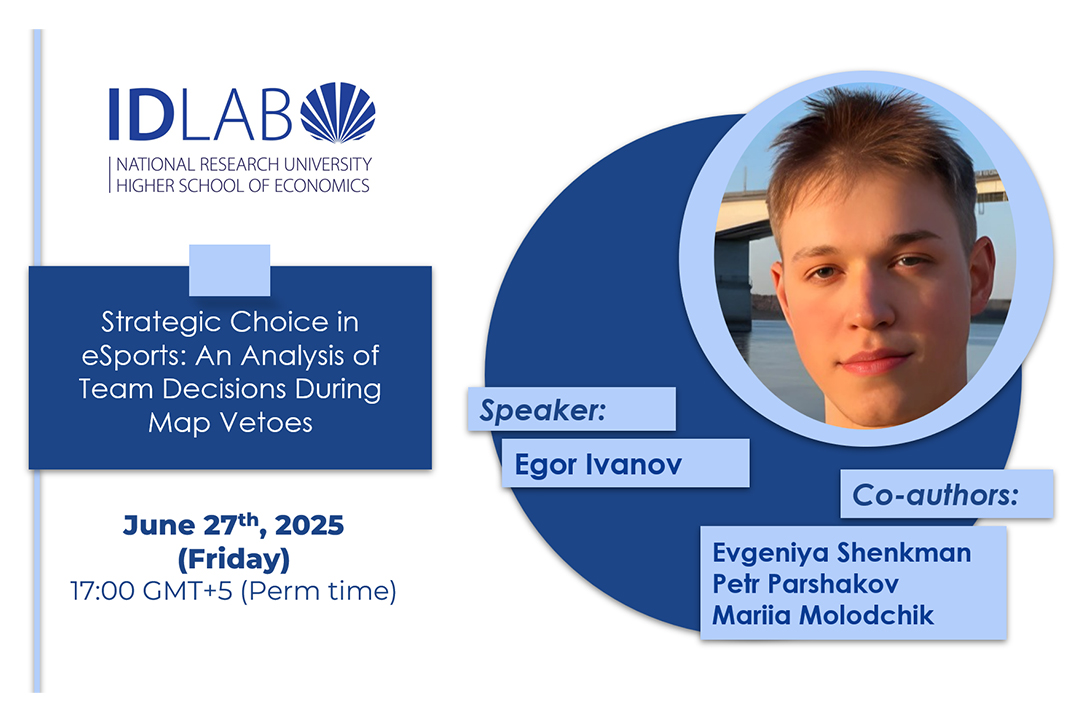Strategic Choice in Cybersport: Egor Ivanov spoke at the IDLab seminar
On June 27, Egor Ivanov, a research assistant, presented a report at the regular scientific seminar of the International Laboratory of Intangible-driven Economy. He presented the results of his joint research with Mariya Molodchik, Petr Parshakov, and Evgeniya Shenkman, titled "Strategic Choice in eSports: An Analysis of Team Decisions During Map Vetoes."

A map in CS:GO is a virtual battlefield with a unique structure and strategic features. The choice of map determines the style of play, the balance of power and the effectiveness of teamwork. Teams spend months practicing on their maps, and even a slight advantage in map knowledge can play a decisive role in the outcome of a match.
Using data from over 1,000 professional matches, the authors tested whether teams' actual card selection strategies aligned with the optimal approach of maximizing the difference in chances to win. They also compared this strategy with alternative approaches, such as choosing cards based on the team's confidence level regardless of the opponent's weaknesses or emphasizing the opponent's vulnerable cards.
The results were unexpected. Only about 37% of the decisions corresponded to the optimal theoretical strategy. Furthermore, adhering to this strategy was associated with a 33% decrease in the likelihood of winning. The authors explain this by suggesting that the optimal strategy may be too predictable, allowing opponents to prepare in advance.
During the discussion, the participants noted that the identified patterns are relevant not only to cybersport, but also to other areas. Similar strategies and trade-offs arise in business, such as in negotiations, resource allocation, investment portfolio formation, and competition. In real life, rigid adherence to mathematically "ideal" strategies often loses out to flexible and adaptive approaches.
Date
3 July
Topics
